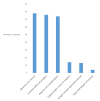The Determinants of Long-Term Outcomes After Colorectal Cancer Surgery: A Literature Review
- PMID: 39744296
- PMCID: PMC11692687
- DOI: 10.7759/cureus.74985
The Determinants of Long-Term Outcomes After Colorectal Cancer Surgery: A Literature Review
Abstract
Colorectal cancer (CRC) is a common malignancy associated with high mortality. Surgical care is an effective colorectal cancer management technique, and it is therefore crucial that a review of the determinants of patients' long-term outcomes after CRC surgery is conducted. This article aims to provide healthcare professionals and policymakers with insights into the determinants of long-term outcomes following CRC surgery while acknowledging the interconnected impact of the early recovery and post-operative periods. For this review, PubMed and Google Scholar were used to search for literature on the determinants of long-term outcomes of patients post-colorectal cancer surgery. The determinants included pre-operative factors, CRC surgery factors (anatomical location of the lesion, select operative techniques, and cancer disease stage), adherence to the Enhanced Recovery After Surgery (ERAS) guidelines, post-operative complications, presence of an ostomy, physical activity levels, psychosocial factors, recurrence, and follow-up strategies. Selection criteria were published articles between 1994 and 2024 on colorectal cancer, its surgery, and determinants of outcomes. Several key determinants influence long-term outcomes following colorectal cancer surgery, including preoperative factors, CRC surgery factors, adherence to the ERAS guidelines, postoperative complications, the presence of an ostomy, physical activity levels, psychosocial factors, recurrence, and follow-up strategies. These determinants collectively impact survival, quality of life, functional recovery, and psychosocial well-being. On the one hand, negative outcomes following colorectal cancer surgery are often linked to preoperative factors such as poor nutritional status, sarcopenia, and inadequate adherence to ERAS guidelines during the perioperative period. Minimally invasive surgeries, while as effective as open surgeries for early-stage CRC, may be less suitable for advanced stages and often involve prolonged operating times - a factor linked to poorer outcomes. Complications of CRC surgery, such as anastomotic leakage, chronic surgical site pain, bowel dysfunction, and urological issues, further contribute to negative long-term outcomes. High recurrence rates are also linked to poor prognoses, emphasizing the importance of regular surveillance and timely interventions, though these can lead to patient anxiety and overtreatment. The presence of an ostomy can impact psychosocial adjustment and overall quality of life, further influencing long-term outcomes. On the other hand, positive outcomes are associated with regular physical activity post-surgery, which significantly aids long-term recovery irrespective of preoperative activity levels. Psychosocial support networks also play a crucial role in mitigating mental health challenges often faced after CRC surgery. Collectively, these determinants underscore the complexity of long-term outcomes in colorectal cancer surgery and highlight the importance of a holistic approach to patient care.
Keywords: colorectal cancer surgery; long term outcomes; post-operative outcomes; quality of life; recurrence rates.
Copyright © 2024, Anifalaje et al.
Conflict of interest statement
Conflicts of interest: In compliance with the ICMJE uniform disclosure form, all authors declare the following: Payment/services info: All authors have declared that no financial support was received from any organization for the submitted work. Financial relationships: All authors have declared that they have no financial relationships at present or within the previous three years with any organizations that might have an interest in the submitted work. Other relationships: All authors have declared that there are no other relationships or activities that could appear to have influenced the submitted work.
Figures


Similar articles
-
Longitudinal Evaluation of Bowel Function Recovery and Determinants in Colorectal Cancer Patients Postileostomy: A Comprehensive Study.Int J Nurs Pract. 2025 Jun;31(3):e70024. doi: 10.1111/ijn.70024. Int J Nurs Pract. 2025. PMID: 40511627
-
Impact of visceral obesity and sarcobesity on surgical outcomes and recovery after laparoscopic resection for colorectal cancer.Clin Nutr. 2020 Dec;39(12):3763-3770. doi: 10.1016/j.clnu.2020.04.004. Epub 2020 Apr 11. Clin Nutr. 2020. PMID: 32336524
-
Does implementation of and adherence to enhanced recovery after surgery improve perioperative nutritional management in colorectal cancer surgery?ANZ J Surg. 2022 Jun;92(6):1382-1387. doi: 10.1111/ans.17599. Epub 2022 Mar 18. ANZ J Surg. 2022. PMID: 35302700
-
Enhanced rehabilitation after surgery: principles in the treatment of emergency complicated colorectal cancers - a narrative review.J Med Life. 2025 Mar;18(3):179-187. doi: 10.25122/jml-2025-0049. J Med Life. 2025. PMID: 40291936 Free PMC article. Review.
-
Impact of "Enhanced Recovery After Surgery" (ERAS) protocols vs. traditional perioperative care on patient outcomes after colorectal surgery: a systematic review.Patient Saf Surg. 2025 Jan 16;19(1):4. doi: 10.1186/s13037-024-00425-9. Patient Saf Surg. 2025. PMID: 39819478 Free PMC article. Review.
References
Publication types
LinkOut - more resources
Full Text Sources
